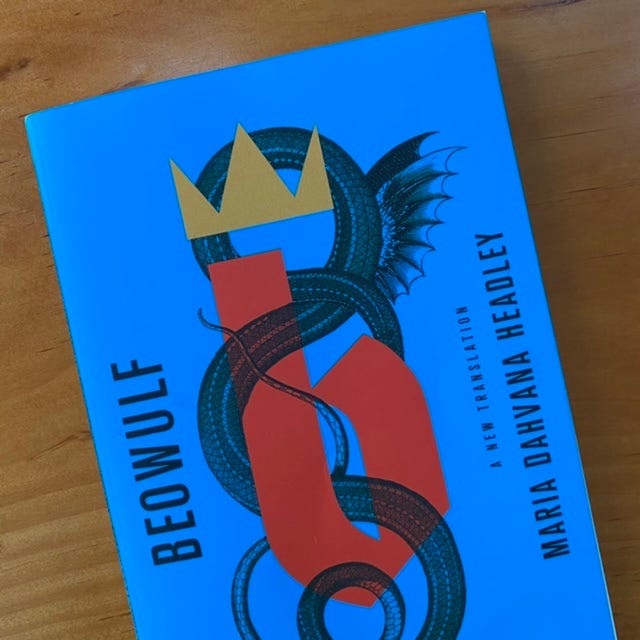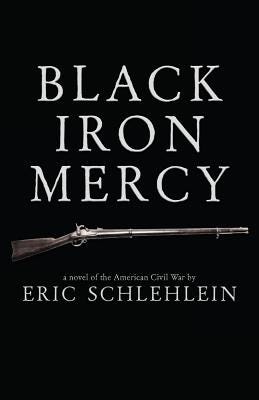What to Read Next (No. 171): battles in fiction — Beowulf and Gettysburg
Beowulf and a novel of the Civil War
First of all, I’d like to give a hearty thanks to the new subscribers. This is the first week that What to Read Next is exclusively for paid members. (Free subscribers now get an every-other-week preview/digest of what I send you guys.) Of course, I appreciate all of you who subscribe here, and please spread the word if you enjoy getting my recommendations to your inbox.
This week we’re looking at battles portrayed in fiction. One is an old story—the oldest in the English language, in fact—and the other is relatively new.
One quick thing: I’m still including interviews in the free edition, and I’ll make sure you guys have a link to those. This week I interviewed Evan Axelbank, who’s a friend, TV news reporter, and podcaster. He’s a prolific reader who interviews non-fiction authors on his show. Check out that interview here.
Beowulf translated by Maria Dahvana Headley
Published: 2020 | Pages: ~160 (including intro)
This old legend, to the surprise of everyone in our book club, was voted on as the April read. In our group, there’s not many who would consider themselves as being into epic poetry. And though we didn’t all love the story itself, it led to a really interesting discussion on masculine/feminine literature, the art of translation, and the modernization of old books.
Though I had previously never read the story, Beowulf is pretty common in high school and college courses for its importance to the English canon (it’s the oldest piece of literature written originally in English). The translation you’ve read if you’re in that camp was likely either JRR Tolkien—it was among his favorite tales—or Seamus Heaney. (I read Heaney before reading Headley; it’s a pretty quick story to read.) Those two admit to taking the text very seriously and bringing a masculine and kingly tone to their work.
Maria describes her translation as the feminist, modernized version of Beowulf. The first thing you notice is that it’s decidedly less formal language. The first lines are:
“Bro! Tell me we still know how to speak of kings! In the old days everyone knew what men were: brave, bold, glory-bound.”
Compare that to Heaney:
“So. The spear-danes in days gone by and the king who ruled them had courage and greatness. We have heard of those princes’ heroic campaigns.”
The real strength of Headley’s Beowulf is the long introduction that describers her reasoning for taking on the ur-text of English and her methodology for the language she chose. Whereas Tolkien and Heaney assumed a rather proper stance, Headley took the approach that this was more akin to the type of story being told by the guy at the bar who’s already had a few.
The story itself: I didn’t love Beowulf as a protagonist. It’s an action story, for sure, but without much character growth or movement. The first battle is exciting, thrilling, and novel; the second battle is still enticing enough to turn the pages; by the third battle, it seems a little repetitive. Beowulf starts as a great hero, ends as a great hero, and there’s just not much of a character arc.
Headley does such interesting things with the language, though, that it’s well worth reading. Each page brings a bit of a linguistic surprise and there are even plenty of laughs along the way—which is not something you’ll find in other translations.
If you think you know Beowulf, give it a shot. And definitely consider it for your book club; this is a book and a translation that beg to be talked about.
Black Iron Mercy by Eric Schlehein
Published: 2016 | Pages: 393
The Civil War is the most written-about period of American history; nothing else really even comes close. Beyond just the histories, though, are the hoard of historical fictions centered on the war. Some of the greatest historical novels of all-time include The Red Badge of Courage, The Killer Angels, Gone With the Wind, and Cold Mountain. A couple others I’ve written about just in the last couple years are Varina and John Jakes’ epic North and South trilogy. Civil War fiction is certainly a niche genre that I gravitate towards—along with scores of other readers.
So when the Civil War Breakfast Club recommended Black Iron Mercy, a Gettysburg novel I’d never heard of, I scooped it up on Kindle (it’s only $2.99!).
The story opens 18 years after the war has ended. Arlis Jenkins limps around as best he can, but carries deeper battle wounds than what’s visible. Told mostly through flashbacks, we get Jenkins’ backstory all the way from childhood (and first love), to his enrollment into the Union ranks, to the origins of his wounds, and finally to restoring the proper memory of the famed Iron Brigade.
Surprisingly, the battle scenes are given the least amount of real estate in the pages of this book. It really centers on the interior life of Mr. Jenkins, primarily before and after the war. What leads to his choice to fight? How does the war, and the relationships he forges, stick with him afterwards? Arlis ends up being as likable and as easy to root for as any character you’ll comes across—and Schlehein does it without sacrificing depth. (Sometimes a character can be likable simply because they never do anything wrong; but then they end up being shallow and one-dimensional.)
For being a debut novel out of a small, independent publishing house, it reaches soaring heights that put it just below the top-tier of this niche genre. It’s quite an achievement and I recommend Black Iron Mercy to anyone who enjoys historical fiction.
Thanks so much for subscribing. I really appreciate the support!
Please let me know what you’re reading—I love to hear.
-Jeremy



